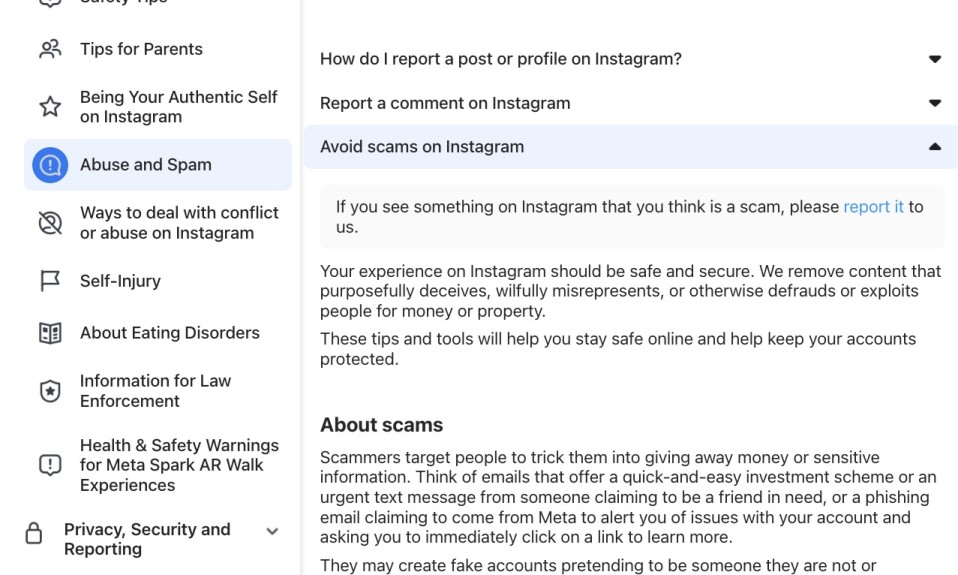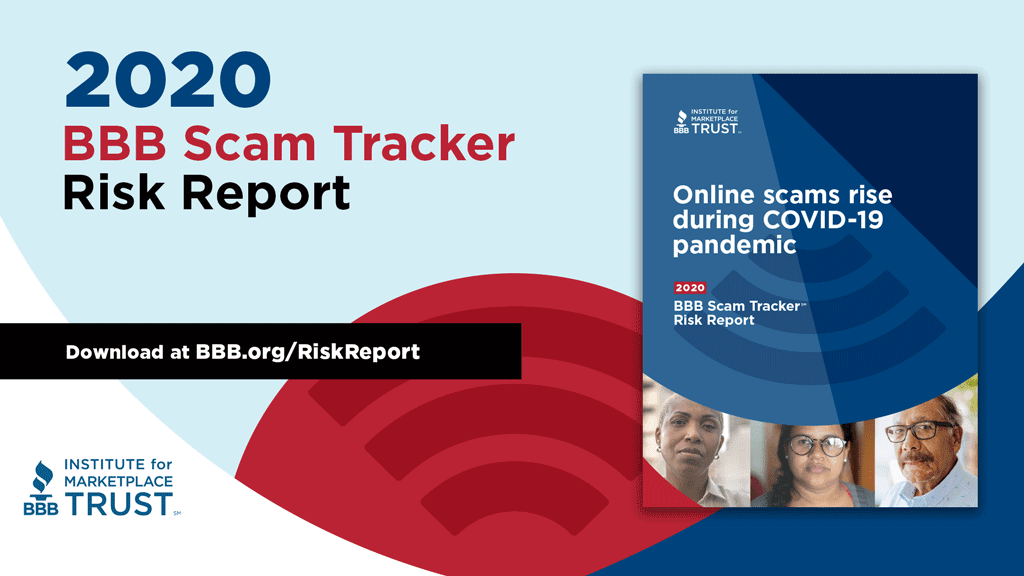
|
IN BRIEF
|
Reporting an online scam effectively requires understanding the necessary steps to take in order to protect yourself and others from potential fraud. With the increasing sophistication of scammers and their tactics, it is crucial to act quickly and efficiently when encountering suspicious activities. Identifying the right authorities to report to, gathering relevant evidence, and providing concise details about the incident are essential elements in the reporting process. By following appropriate guidelines, you can contribute to preventing further scams and ensuring that the perpetrators are held accountable for their actions.
Encountering an online scam can be a distressing experience. Knowing how to report such scams efficiently can contribute significantly to stopping fraudulent activities and protecting others. This article outlines the best practices for reporting online scams, highlighting both the advantages and disadvantages of various reporting methods. It provides guidance on navigating different platforms and authorities that can help in addressing these issues.
Advantages
One of the primary advantages of reporting an online scam is the potential to prevent others from falling victim to the same deceitful tactics. By making a report, individuals contribute to a broader awareness of ongoing scams and fraud patterns.
Additionally, many government agencies, such as the Federal Trade Commission (FTC), provide dedicated resources and tools for reporting scams. These platforms simplify the reporting process and may lead to direct investigations. For instance, using the USA.gov’s scam reporting tool can help pinpoint the right authority to file a complaint with.
Disadvantages
Despite its importance, there are several disadvantages to reporting online scams. One major drawback is the potential for a lengthy process before any action is taken. Reports may get lost in bureaucratic systems, leaving victims feeling frustrated. Furthermore, many individuals might not see a tangible outcome from their reports.
Another concern is the possibility of retaliation from the scammer. While most reports are anonymous, sharing personal information might expose victims to additional risks. It is crucial to handle the situation with caution when interacting with various reporting agencies, as personal safety should always be a priority.
Understanding the process of reporting an online scam effectively can empower victims and help safeguard the online community. Balancing the advantages and disadvantages, individuals can make informed decisions on how best to approach reporting their unfortunate experiences.
Encountering an online scam can be distressing, but knowing how to report it effectively is crucial for protecting yourself and others. This guide provides steps and resources to help you report fraudulent activities, ensuring that your complaint reaches the appropriate authorities and can contribute to preventing further scams.
Gather Evidence
The first step in reporting an online scam is to collect all relevant evidence. This includes suspicious emails, screenshots of misleading advertisements, or any communication with the scammer. Documenting these details will support your case.
Report to Local Authorities
Begin by reporting the scam to your local police department. Providing them with all relevant information and evidence is vital. Local law enforcement can help identify patterns and track down the scammers.
Utilize Government Resources
In the United States, you can report the scam through ReportFraud.ftc.gov, the federal government’s website for reporting scams, frauds, and bad business practices. Additionally, the Internet Crime Complaint Center (IC3) is another valuable resource for sharing your experience.
Contact Consumer Protection Agencies
Depending on the nature of the scam, you may also want to contact consumer protection agencies. The Federal Trade Commission (FTC) handles a wide range of fraud complaints. You can reach out to them directly at ReportFraud.ftc.gov.
Notify Financial Institutions
If you have shared your financial information or if money has been taken, notify your bank or credit card company immediately. They may assist you in recovering lost funds and guide you through securing your accounts. Refer to this link for more details on bank recovery options.
Share Your Experience Online
Consider sharing your experience with reputable consumer protection websites and forums. This can help inform others about the scam and bolster warnings against potential fraudsters. There are numerous resources online to report various types of scams and provide information on their methods, such as warning signs of online scams.
Follow Up on Your Report
After filing a report, it’s essential to follow up. Keep records of your communications with authorities and stay updated on the status of your report. This persistence can aid in ongoing investigations and enhance the chances of accountability for the scammers.

Reporting an online scam can be a daunting task, but understanding the right steps to take can make it much easier. This guide outlines effective methods for reporting online scams, providing clarity on where to report fraud and how to navigate the process efficiently. Whether you’ve fallen victim to a scam or encountered suspicious activity, knowing how to respond is vital for protecting yourself and others.
Gather Relevant Information
Before reporting a scam, it is crucial to collect all relevant information. Gather evidence such as emails, screenshots, invoices, or any correspondence related to the scam. This will help law enforcement or consumer protection agencies to understand the situation better and take appropriate action.
Report to Local Authorities
Begin by reporting the scam to your local police department. Provide them with detailed information and evidence you have gathered. Local law enforcement may be able to investigate further, especially if the scam is affecting multiple people in your area.
Contact Federal Agencies
For broader issues like fraud or cybercrime, contact federal agencies. The FBI allows you to report cyber crime through their website. Similarly, you can file a report regarding scams involving businesses through the Federal Trade Commission. These agencies have the resources to investigate scams at a national level.
Use Online Scam Reporting Tools
Utilize tools available on government websites to report scams. For example, USA.gov provides a scam reporting tool that can direct you to the appropriate agency or organization based on the nature of the scam.
Be Cautious of Phishing Emails
If the scam involved suspicious emails or phishing attempts, report these communications to the FTC by keeping a record of all contacts. You can also call their help line at (877) IDTHEFT for assistance.
Understand the Consequences of Reporting
When considering whether to report a scam, it’s essential to understand that there can be positive outcomes. Reporting not only helps you possibly recover losses, but it also aids in preventing others from falling victim to the same scam. For more information on potential outcomes, refer to discussions about reporting scams.
Educate Yourself on Scams
Finally, armed with knowledge about common scam tactics can enhance your ability to report effectively. Familiarizing yourself with the common tactics used by scammers can help you identify scams early and report them swiftly.
Reporting Methods for Online Scams
| Reporting Method | Description |
| Local Law Enforcement | File a complaint providing all relevant details and evidence. |
| Federal Trade Commission (FTC) | Report fraud at ReportFraud.ftc.gov. |
| Internet Crime Complaint Center (IC3) | Submit your report about cyber crimes online. |
| Federal Bureau of Investigation (FBI) | Contact tips.fbi.gov for serious threats or active scams. |
| Consumer Help | Utilize toll-free services for consumer fraud complaints. |
| Online Reporting Tools | Visit USA.gov for guidance on which agency to report to. |

Reporting an online scam can be a daunting task, but it’s essential for protecting yourself and others from fraud. It’s crucial to gather all relevant information about the incident. Start by collecting evidence such as emails, messages, or screenshots of the scam. This documentation will support your report and assist investigators in their efforts.
Once you have your evidence ready, begin the reporting process. If you suspect fraud, the Federal Trade Commission (FTC) is the first agency you should contact. You can submit your report at ReportFraud.ftc.gov, ensuring that detailed information is included to expedite the process.
In case the scam has a direct impact on your financial security or involves identity theft, immediately contact your local law enforcement. Providing them with all the gathered information enables a broader investigation into the scammer’s activities.
If the scam is severe or poses an ongoing threat to others, consider filing a report with the FBI. This can be done through their tips portal at tips.fbi.gov. The FBI has specialized units to handle such cases and can take significant action against cybercriminals.
Another useful method is utilizing resources from USA.gov, where you can find the appropriate consumer organization or government agency based on the scam details you provide. This can guide you in addressing your report to the right place.
Additionally, for those who receive suspicious emails or texts, it’s advisable to report them directly to the FTC or by calling the identity theft hotline at (877) IDTHEFT. Being proactive helps raise awareness about these opportunistic scams.
Finally, always remember to alert your bank or financial institution if any financial transactions were involved. They might assist in preventing further losses and recovering funds if possible.
In an increasingly digital world, online scams are becoming more prevalent, and knowing how to report them effectively is essential. This article provides a comprehensive guide on the steps to take when you encounter an online scam. Whether you’ve fallen victim to phishing, fraud, or other deceptive practices, understanding the reporting process can help protect yourself and others.
Gather Evidence
Before reporting an online scam, it’s crucial to collect all the necessary evidence. This will help authorities take action against the scammer more efficiently. Start by documenting:
- Emails: Save the entire email thread, including headers.
- Messages: Screenshot any chat conversations or suspicious messages.
- Websites: Note the URLs and take screenshots of the scam website.
- Financial Transactions: Keep records of any payments made or transactions attempted.
Detailed evidence increases the likelihood of a successful report, as it provides a clearer picture of the scam.
Report to Relevant Authorities
Once you have gathered sufficient evidence, the next step is to report the scam to the appropriate authorities. Depending on your location and the nature of the scam, consider the following:
Federal Trade Commission (FTC)
In the United States, the FTC serves as a key agency for consumer protection. Visit ReportFraud.ftc.gov to file your complaint. They have specific guidelines for various types of scams, ensuring your report is directed to the right department.
Local Law Enforcement
If you believe you are the victim of a crime or the scam poses a threat to others, contact your local police department. Provide them with all the evidence you gathered, as this can assist in their investigation.
Internet Crime Complaint Center (IC3)
The IC3 is an initiative led by the FBI. It allows individuals to report online crimes, including fraud and identity theft. Submitting a complaint through the IC3 can help facilitate federal investigations.
Inform Financial Institutions
If the scam involved any form of financial transaction, it’s essential to notify your bank or credit card company immediately. They can guide you on the next steps, which may include:
- Disputing charges: If you provided payment details, request to dispute any unauthorized transactions.
- Freezing accounts: They may recommend freezing your accounts to prevent further unauthorized access.
Notify Online Platforms
If the scam occurred on a social media platform, auction site, or any other online service, reporting the scam to that platform is vital. Most platforms have dedicated reporting tools to address incidents of fraud and scams. This helps safeguard users from future scams.
Seek Support and Resources
Dealing with an online scam can be overwhelming. Consider reaching out to local consumer protection groups or online forums for support. They may offer valuable resources or advice on handling your situation.
Additionally, educate yourself about common scams and how to avoid them in the future. Awareness is a key component of prevention.

How to Report an Online Scam Effectively
When you find yourself a victim of an online scam, the first step is to gather all pertinent information related to the incident. This includes any emails, messages, or transaction records that can serve as evidence of the fraudulent activity. Such documentation is crucial when detailing your experience to the authorities.
The subsequent step involves reporting the scam to the appropriate organizations. Begin by visiting ReportFraud.ftc.gov to file a complaint with the Federal Trade Commission (FTC). This platform is designed for individuals to report various forms of fraud, including internet scams and illegal business practices. Including as many details as possible enhances the integrity of your report.
In certain situations, it may also be beneficial to contact your local law enforcement agency. They can provide guidance on additional steps you can take, and if necessary, initiate an investigation into the matter. Your report to the police should include all the documentation you have gathered, which will assist them in understanding the case better.
If the scam involved unsolicited communications, such as phishing attempts, reporting such suspicious emails to the FTC is advised. Additionally, if imitated financial frameworks were involved, it’s wise to inform your bank or credit card company, as they can provide assistance in preventing unauthorized transactions.
Lastly, take advantage of online resources such as USA.gov to learn more about the reporting process and find the right agency for your particular scam type. Understanding how to navigate this process effectively not only aids your personal situation but also contributes to wider efforts in combating cybercrime.
Frequently Asked Questions about Reporting Online Scams
How do I report an online scam? Start by gathering all relevant information about the scam, including emails, messages, and transaction details, and then report it to your local police department and the Federal Trade Commission (FTC) through ReportFraud.ftc.gov.
What information do I need to provide when reporting a scam? You should provide detailed information regarding the scammer’s identity, the nature of the scam, any financial losses incurred, and copies of any correspondence or evidence related to the scam.
Can I report a scam directly to the FBI? Yes, if you believe the scam involves a significant crime or threatens national security, you can file a report with the FBI via their tips website.
What should I do if I have been scammed online? If you have fallen victim to a scam, report it immediately to local law enforcement, the FTC, and your bank or credit card company to attempt to recover any lost funds.
Is it necessary to report an online scam? Yes, reporting online scams helps law enforcement track and investigate fraudulent activities, which can prevent others from becoming victims.
How can I recognize a scam before reporting it? Be aware of common warning signs of scams, such as unsolicited messages, offers that seem too good to be true, and requests for personal or financial information.
What steps can I take to protect myself from online scams? To protect yourself, use strong passwords, enable two-factor authentication, and be cautious when sharing personal information online, particularly with unfamiliar entities.
Can I get my money back after being scammed online? While it may be difficult, you can attempt to recover funds by filing a complaint with your bank, alerting your credit card provider, and reporting the scam to the FTC.
